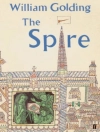The Complete Works of Emily Brontë compiles the poetic and narrative genius of an author whose work captures the tumultuous landscape of human emotion and nature. Renowned for her only novel, Wuthering Heights, Brontë weaves intricate themes of love, revenge, and the supernatural into a rich tapestry of Gothic horror and romanticism. Her literary style, characterized by a brooding intensity and innovative use of nonlinear storytelling, breaks conventional boundaries of 19th-century literature, inviting readers to explore the depths of her characters’ psyches and the stark Yorkshire moors that reflect their turmoil. Emily Brontë, born in 1818 in Yorkshire, was heavily influenced by her isolated upbringing and the rugged beauty of her surroundings. A member of a literary family, alongside her sisters Charlotte and Anne, Emily’s profound affinity for poetry blossomed early, leading her to express the complexities of existence through introspective and often mythical lenses. Her deep connection to nature and fervent imagination significantly shaped the themes and stylistic choices found throughout her works, which were often overlooked during her lifetime but gained appreciation posthumously. This collection is essential for readers seeking to understand the complexities of Brontë’s artistry and the broader context of Victorian literature. It serves not only as an exploration of her characters and themes but also as a testament to the resilience of human spirit in the face of adversity. Ideal for both scholars and enthusiasts, The Complete Works will enlighten and inspire those who venture into its pages.
O autorze
Emily Brontë, born on July 30, 1818, in Thornton, Yorkshire, England, was a writer whose work has rippled through the currents of English literature with resounding influence. She was the fifth of six children of Patrick Brontë, a clergyman, and Maria Branwell Brontë. Her upbringing at the Haworth Parsonage, amidst the moors, cultivated in her a profound connection to nature which is vividly expressed through her literary output. Known for her intense, Gothic imagination, Emily’s works encompass a deep psychological and elemental force. Though her output was relatively limited, her novel 'Wuthering Heights’, first published under the pseudonym Ellis Bell in 1847, has become an unfading classic of English literature. It is renowned for its intricate narrative structure and the haunting story of passionate and vengeful love between its main characters, Heathcliff and Catherine Earnshaw. The complexity of her characters and the raw emotional power of her novel have inspired endless scholarly examination. Emily’s poetry, less known than her novel, likewise demonstrates her literary skill, imbued with a somber beauty and existential contemplation, illustrating her as a formidable poet of the Romantic era. Tragically, Emily died young at the age of 30 on December 19, 1848, from tuberculosis, leaving behind a legacy that has far outstripped the brevity of her life. Her singular novel, together with her poetry, was later published posthumously by her sister, Charlotte, as 'The Complete Works of Emily Brontë’, ensuring that Emily’s eloquent voice endures in the canon of English literature.












